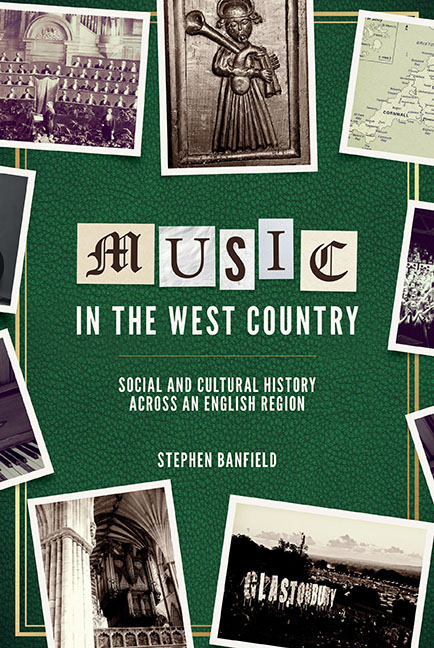Book contents
- Frontmatter
- Dedication
- Contents
- List of Illustrations
- Preface and Acknowledgements
- List of Abbreviations
- Author's Note
- 1 Landscapes and Soundscapes
- 2 Musical Authority: Organs
- 3 Musical Incorporation: Bands and Choirs
- 4 Musical Livings I: The Prosopography
- 5 Musical Livings II: Individual Case Studies
- 6 Musical Capitalisation I: Events and Inventions
- 7 Musical Capitalisation II: Institutions
- Epilogue: The Measure of a Region
- Bibliography
- Index
- Titles listed here were originally published under the series title Music in Britain, 1600-1900
6 - Musical Capitalisation I: Events and Inventions
Published online by Cambridge University Press: 31 August 2019
- Frontmatter
- Dedication
- Contents
- List of Illustrations
- Preface and Acknowledgements
- List of Abbreviations
- Author's Note
- 1 Landscapes and Soundscapes
- 2 Musical Authority: Organs
- 3 Musical Incorporation: Bands and Choirs
- 4 Musical Livings I: The Prosopography
- 5 Musical Livings II: Individual Case Studies
- 6 Musical Capitalisation I: Events and Inventions
- 7 Musical Capitalisation II: Institutions
- Epilogue: The Measure of a Region
- Bibliography
- Index
- Titles listed here were originally published under the series title Music in Britain, 1600-1900
Summary
❧ A Song and Some Theory
IN CHAPTER 3 a poem by Thomas Hardy about instrumental playing was quoted and discussed. Another Hardy poem, ‘Her song’, presented below in its entirety, is about singing.
I sang that song on Sunday,
To witch an idle while,
I sang that song on Monday,
As fittest to beguile:
I sang it as the year outwore,
And the new slid in;
I thought not what might shape before
Another would begin.
I sang that song in summer,
All unforeknowingly,
To him as a new-comer
From regions strange to me:
I sang it when in afteryears
The shades stretched out,
And paths were faint; and flocking fears
Brought cup-eyed care and doubt.
Sings he that song on Sundays
In some dim land afar,
On Saturdays, or Mondays,
As when the evening star
Glimpsed in upon his bending face,
And my hanging hair,
And time untouched me with a trace
Of soul-smart or despair?
This poem's protagonist, like all of Hardy's heroines a Wessex or west country woman, is undoubtedly rural, if part of the man's attraction was that he came from a different region. Hardy therefore wants us to think of her song as a folksong, with three functions specified in turn in the first six lines: it is sung at leisure, at work, and at feasting. She sings the song on Sunday because in a rural community there is nothing else to do on a Sunday, and by 1850 half the population of England was no longer going to church. (Nevertheless, the first line is intended to shock: one should not sing a secular song on the Sabbath.) She doubtless sings the song on Monday while she does the washing, though there is also the implication, returning in the final stanza, that it was on Monday that the song undid her, when she beguiled somebody with it. Then she sings it at a New Year's Eve party.
She will probably have learnt the song from her mother, who quite likely underwent a similar life and may still be working and singing alongside her, and, although no child is mentioned, there would not have been such dreadful ‘cup-eyed care and doubt’ without one, and it is probably to the child that she is passing on the song during the second half of stanza 2.
- Type
- Chapter
- Information
- Music in the West CountrySocial and Cultural History Across an English Region, pp. 249 - 297Publisher: Boydell & BrewerPrint publication year: 2018



